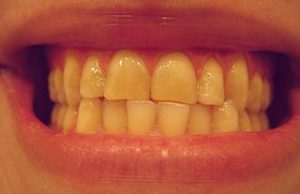See Dr. Dana Walters today for relief from the adverse effects of teeth grinding.
Patients may grind, gnash or clench their teeth while asleep, making them unaware of the habit. They often wake up with a sore jaw, headache, or even with broken or fractured teeth. Some people even unconsciously grind their teeth while awake.
Dr. Walters can help if you have any of these symptoms of teeth grinding:
- You or your sleep partner are woken from your teeth grinding or clenching
- Teeth are fractured, chipped or become loose
- Tooth enamel is worn down
- You have increased tooth pain or sensitivity
- Jaw muscles feel tight, or the jaw locks up or won’t open or close completely
- You have pain in the jaw, neck or face or ears
- You get dull headaches, often starting in the temples
Causes of Bruxism
While an exact cause is not known, medical professionals believe teeth grinding is due to a combination of physical, psychological, and genetic factors:
- Anxiety, stress, anger or tension
- Deep dreaming and other sleep stimulations
- Certain medications, or substances such as caffeine and alcohol
- Medical conditions such as Parkinson’s, dementia and other diseases
- Genetics: Bruxism commonly runs in families
- In children, causes of bruxism most commonly include oral irritation, allergies, and teeth that need realigning.
Bruxism Treatment
Both adults and children affected by teeth grinding need dental attention. If left unchecked, affected teeth can loosen and fall out.
Adults will benefit from a mouth guard worn nightly to guard against the effects of teeth grinding. Relaxation techniques such as exercise, yoga, and meditation may also help with the psychological aspects of the disorder.
For children, a checkup by Dr. Walters as well as by their pediatrician can usually result in corrective measures.


